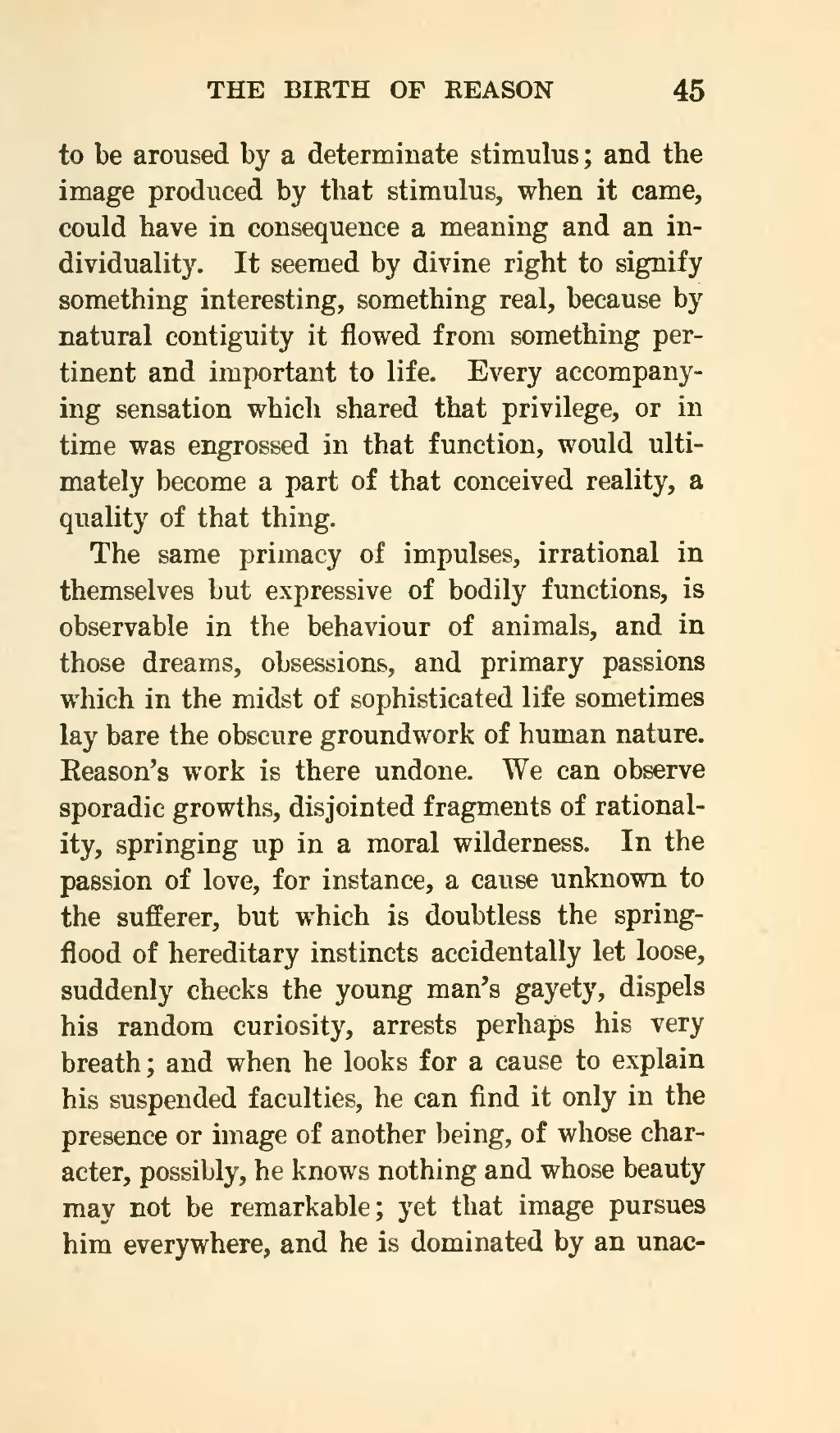to be aroused by a determinate stimulus; and the image produced by that stimulus, when it came, could have in consequence a meaning and an individuality. It seemed by divine right to signify something interesting, something real, because by natural contiguity it flowed from something pertinent and important to life. Every accompanying sensation which shared that privilege, or in time was engrossed in that function, would ultimately become a part of that conceived reality, a quality of that thing.
The same primacy of impulses, irrational in themselves but expressive of bodily functions, is observable in the behaviour of animals, and in those dreams, obsessions, and primary passions which in the midst of sophisticated life sometimes lay bare the obscure groundwork of human nature. Reason’s work is there undone. We can observe sporadic growths, disjointed fragments of rationality, springing up in a moral wilderness. In the passion of love, for instance, a cause unknown to the sufferer, but which is doubtless the spring-flood of hereditary instincts accidentally let loose, suddenly checks the young man’s gayety, dispels his random curiosity, arrests perhaps his very breath; and when he looks for a cause to explain his suspended faculties, he can find it only in the presence or image of another being, of whose character, possibly, he knows nothing and whose beauty may not be remarkable; yet that image pursues him everywhere, and he is dominated by an unac-
